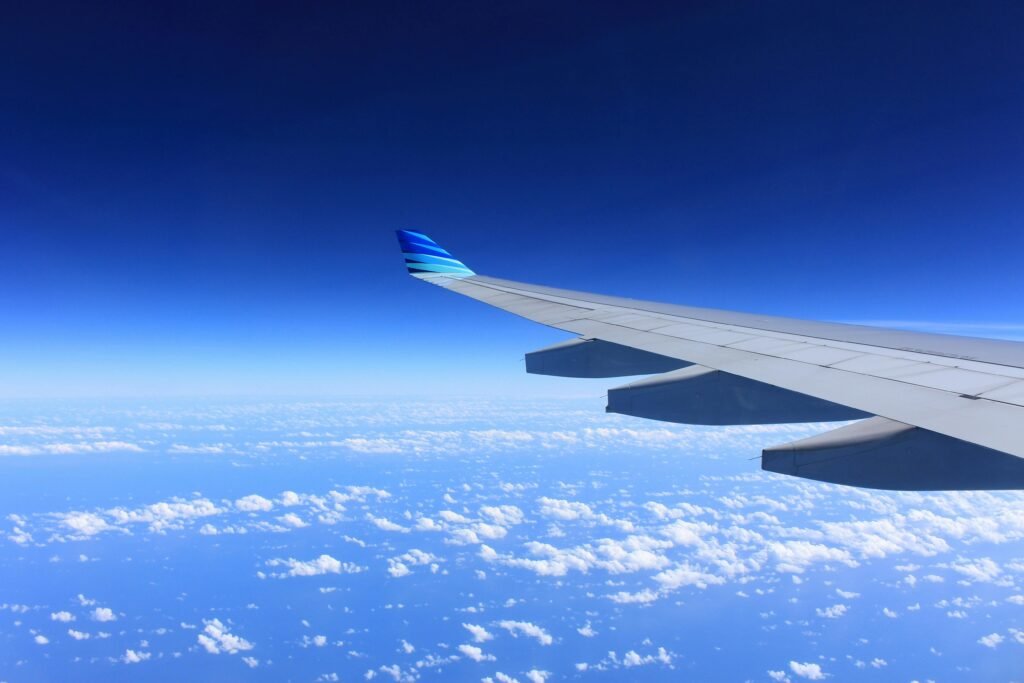Introduction: The Importance of Budget Travel
Budget travel has become increasingly popular in recent years, capturing the attention of a wide range of travelers, from students embarking on their first solo journey to families seeking affordable vacations. This trend is not merely a fad; it reflects a growing awareness of the importance of prudent spending in today’s economy. With fluctuating airfare prices and rising accommodation costs, savvy travelers are now more inclined to seek out strategies to minimize their expenses while maximizing their experiences.

One of the primary advantages of budget travel is the ability to explore more destinations without incurring substantial financial burdens. By securing discounted flights and affordable lodging, individuals can travel more frequently, immersing themselves in new cultures and environments. This not only enriches their personal lives but also broadens their perspectives, as they learn to appreciate the diversity of the world around them. Moreover, budget travel often encourages creativity, prompting tourists to find innovative ways to stretch their dollars, such as opting for local dining options or using public transportation, which can lead to a more authentic travel experience.
The significance of budget travel in today’s travel landscape cannot be overstated. It allows for inclusivity in the travel market, enabling people from various economic backgrounds to explore distant lands. Additionally, the rise of budget airlines and alternative accommodation platforms has democratized travel, making it more accessible than ever before. This shift has changed the way we view vacations, emphasizing experiences over luxury. As travelers become more mindful of their spending, they also engage in more sustainable practices, supporting local businesses and communities. Therefore, embracing budget travel not only benefits the individual but also positively impacts the broader travel industry and the regions visited.
Researching Affordable Flight Options
Finding affordable flight options can significantly impact the overall cost of your travel. One of the most effective strategies is to utilize flight comparison websites. These platforms aggregate prices from various airlines, allowing travelers to compare fares easily and identify the best deals available. Websites like Skyscanner, Kayak, and Google Flights not only display different prices but also offer insightful tools like fare graphs to view price trends over time. Utilizing these resources can lead to substantial savings on airfares.

Flexibility with travel dates is another crucial factor in securing budget-friendly flights. Airfares can fluctuate greatly depending on the day of the week, season, and even time of day. If one is willing to adjust their itinerary slightly or travel during off-peak times, savings can be realized. For instance, flights on Tuesdays and Wednesdays are often cheaper than those on weekends. A month-long window for travel can also provide a better opportunity to discover lower prices.
Setting fare alerts is a practical approach that many savvy travelers employ. By signing up for notifications through various flight comparison websites or apps, travelers can receive real-time updates when prices drop for specific routes. This feature enables users to strike when the price is right and secure the most affordable tickets before they sell out. Additionally, being open to flying out of nearby airports can also enhance savings. In cases where travelers are located near multiple airports, comparing fares from each location can yield affordable options. Sometimes, a short drive could result in considerable price differences on flights, maximizing overall travel savings.
Timing Your Flight Purchases
Securing affordable airfare is often a matter of timing, and understanding fare trends can make a significant difference in your travel budget. Airfare fluctuations depend on a variety of factors, including demand, seasonality, and market competition. By paying attention to these trends, travelers can identify optimal windows for booking flights at lower prices, ensuring they do not overpay for their journeys.
Generally, the best time to book flights is between six to eight weeks in advance for domestic airfare, and around two to three months ahead for international trips. This timeframe allows travelers to take advantage of promotional fares and discounts that airlines release. Additionally, flights tend to be cheaper during off-peak travel seasons, which typically include periods outside of major holidays and school vacation weeks. For instance, flying midweek rather than on weekends often results in lower prices due to decreased demand.
Monitoring fare trends can also yield substantial savings. Several tools and websites are available that track flight prices and can alert you when fares drop. By setting up price alerts, travelers can be notified when it’s the right time to purchase tickets. Moreover, being flexible with travel dates can enhance affordability; sometimes shifting your travel plans by just a day or two can lead to significant savings. Travelers should also consider the time of day for flights, as early morning or late-night departures may be more cost-effective.
Seasonal discounts, flash sales, and promotional codes should not be overlooked, as these can further reduce airfare. Airlines often run sales during specific holidays or anniversaries, providing additional opportunities to secure lower fares. Ultimately, a combination of strategic timing, flexibility, and ongoing market monitoring can empower travelers to book flights at prices that align with their budgetary constraints.
Choosing Budget Airlines vs. Full-Service Carriers
Traveling on a budget often necessitates a careful selection of airlines, which typically boils down to a choice between budget airlines and full-service carriers. Budget airlines, characterized by their lower ticket prices, can significantly reduce travel costs, making them appealing for savvy travelers. However, these airlines often impose additional fees for services such as checked baggage, seat selection, and food and beverages, which can quickly add up. Therefore, it is essential for travelers to carefully assess these potential costs before committing to a budget airline.
On the other hand, full-service carriers usually offer a broader range of included amenities. Passengers flying with these airlines typically enjoy complimentary in-flight meals, beverages, and baggage allowances within the ticket price. This added comfort can enhance the travel experience, especially on longer flights. Nonetheless, the upfront cost of these tickets is often significantly higher than budget options, and this may not be feasible for all travelers.
Another key consideration is the level of service and overall comfort. Budget airlines may compromise on legroom, seating, and general comfort to maintain lower prices. This might lead to an uncomfortable journey, particularly for long-haul flights. In contrast, full-service carriers tend to offer more spacious seating and a higher standard of customer service, which can make a difference during travel. Ultimately, making the right choice between budget airlines and full-service carriers depends on individual priorities. Prioritizing comfort over cost, or vice versa, can guide travelers toward the most suitable option for their needs and budget. It is advisable for travelers to weigh these factors against their specific travel requirements to find the most appropriate and economical travel solution.
Saving on Airport Costs
Traveling on a budget can often be a challenge, particularly when it comes to minimizing airport expenses. One of the most effective strategies is to pack your own snacks. Airport food tends to be overpriced, and bringing your own meals can lead to significant savings. Consider preparing breakfast items like granola bars or sandwiches and packing them in your carry-on luggage. This simple approach not only cuts down on costs but also ensures that you have something to eat during layovers or delays.
Additionally, understanding TSA regulations can help travelers avoid unexpected fees. Familiarizing yourself with the rules regarding liquids, electronics, and prohibited items can expedite your security checkpoint experience. For example, keeping your liquids in a clear, quart-sized bag can facilitate a smoother passage through security. Being prepared with the right documents and complying with requirements can also reduce the need for additional purchases associated with baggage issues or compliance errors.
Transportation to and from the airport is another area where budget-conscious travelers can save. Utilizing public transport options such as buses or trains is often more economical than relying on taxis or ride-sharing services. Many airports are well-connected to public transport networks, offering a cost-effective means of transit. If public transport isn’t feasible, opting for ride-sharing services can still yield savings, particularly if you share a ride with others traveling to the same destination. This approach not only provides a budget-friendly alternative but also enhances social interaction, making the transit experience more enjoyable.
By implementing these strategies—packing your own snacks, understanding regulations, and considering transportation options—you can significantly reduce airport-associated costs. These simple changes can enhance your overall travel experience while maintaining financial prudence, allowing you to allocate your budget to other aspects of your journey.
Finding Affordable Accommodation
When traveling on a budget, securing affordable accommodation is vital to managing overall expenses. Travelers now have various options that cater to different needs, preferences, and comfort levels. One popular choice is hostels, which are typically budget-friendly and offer shared living spaces. Hostels not only provide basic amenities but also foster social interactions, making them an excellent option for solo travelers or those looking to meet new people. Many hostels have private rooms available, balancing both cost and privacy requirements.

Another increasingly popular option is short-term rentals. Platforms like Airbnb or Vrbo allow travelers to rent apartments or homes, often at a more affordable rate than traditional hotels. Short-term rentals afford the advantage of home-like amenities, such as kitchens, allowing travelers to prepare their meals, thereby saving on dining expenses. This can be particularly advantageous for families or groups traveling together, as the cost per person may be considerably lower than in a hotel setting.
In addition, budget hotels are another viable choice. These establishments usually provide essential services, including free Wi-Fi and breakfast, at a lower price than luxury hotels. It is important to read reviews and consider the location of the hotel in relation to public transport and attractions, as a more affordable option further from the city center may result in higher commuting costs.
When evaluating accommodations, travelers should prioritize factors such as cleanliness, safety, accessibility to transportation, and proximity to essential services like supermarkets or cafes. Setting a clear budget and comparing various options can significantly enhance the travel experience without compromising comfort. By carefully selecting the right type of accommodation, travelers can enjoy their trip while sticking to their budget.
Utilizing Travel Rewards and Loyalty Programs
Travel rewards and loyalty programs are essential tools for budget-conscious travelers seeking to reduce their overall travel expenses. Airlines and hotel chains offer these programs as a way to incentivize customer retention, providing members with an array of benefits which can significantly enhance their travel experience. By joining these programs, travelers can accumulate points or miles with every flight or hotel stay, which can later be redeemed for free flights, discounted room rates, and other valuable rewards.
One of the primary advantages of these programs is the ability to earn points on everyday purchases. Many airlines and hotels allow members to earn points not only through direct bookings but also by shopping with partner merchants, dining at specific restaurants, and even using co-branded credit cards. This versatility enables travelers to accumulate points rapidly, accelerating their path to complimentary flights or hotel stays. Marketing strategies often include bonus point promotions, which can offer substantial accumulations during specific seasons or events, further enhancing potential savings.
Moreover, loyalty programs often grant members access to exclusive deals and discounted rates unavailable to non-members. Such perks can include price reductions on base fares, upgrades to higher-class seats, or room enhancements. For frequent travelers, achieving elite status within these programs can unlock additional benefits such as priority boarding, additional luggage allowances, and early check-in opportunities. By maximizing these offerings, travelers can make noticeable reductions in their overall expenditures while simultaneously enjoying a more comfortable travel experience.
In summary, joining travel rewards and loyalty programs represents a strategic approach for budget-minded travelers. By accumulating points, accessing special rates, and optimizing their travel experiences, individuals can enjoy their journeys while keeping costs manageable. Understanding the framework of these programs empowers travelers to make informed decisions, ultimately leading to more enriching travel opportunities at a fraction of the cost.
Exploring Alternative Accommodation Options
When traveling on a budget, exploring non-traditional accommodation options can uncover unique opportunities and significant savings. Among these alternatives, house-sitting, couch surfing, and accommodation exchange programs stand out as viable choices that offer more than just financial benefits.
House-sitting involves taking care of someone’s home – and often their pets – while they are away. This arrangement typically does not involve monetary exchange, thus providing a cost-effective accommodation solution. In addition to significant savings, house-sitting allows travelers to immerse themselves in local neighborhoods, enjoying a more authentic experience compared to traditional hotels. For those considering house-sitting, platforms like TrustedHousesitters or HouseCarers can help connect fly-on-the-wall travelers with homeowners seeking trustworthy caretakers for their properties.
Couch surfing is another appealing alternative, enabling travelers to stay with locals for free. This not only reduces accommodation costs but fosters cultural exchanges and friendships. Through websites such as Couchsurfing.com, travelers can easily find hosts who offer a spare room or couch, enhancing their travel experience with personal insights about the destination. However, it is crucial to prioritize safety by reviewing host profiles, ratings, and references before confirming a stay.
Accommodation exchange programs, such as HomeExchange, allow participants to swap homes with someone from a different location, effectively eliminating lodging costs. This option typically appeals to families or groups seeking longer-term stays. It also provides a unique opportunity to experience a destination from the perspective of a local. Despite the myriad benefits, travelers should conduct thorough research and consider insurance options to safeguard against potential mishaps.
In conclusion, exploring alternative accommodation options like house-sitting, couch surfing, and exchange programs not only helps save money but also enhances travel experiences by allowing deeper connections with local cultures. By taking necessary precautions and utilizing trustworthy platforms, travelers can navigate these alternatives effectively and safely.
Final Tips and Tricks for Budget Travelers
Traveling on a budget does not mean compromising on the quality of your experiences. By adopting a budget-friendly mindset, you can significantly enhance your journey while keeping expenses in check. One of the most effective strategies is to utilize public transportation whenever feasible. Many cities offer reliable bus and train services at a fraction of the cost of taxis or rideshares, allowing travelers to navigate without overspending. Moreover, walking or cycling can offer unique perspectives on a destination, often leading to hidden gems that may not be accessible by vehicle.
Embracing the local culture shines a light on additional ways to save. Eating like a local can be both an enriching and budget-friendly experience. Instead of dining at tourist traps, seek out local markets, food stalls, or small eateries where authentic cuisine can be enjoyed at lower prices. Not only does this tactic help in reducing food expenses, but it also provides a more immersive experience of the destination.
When it comes to attractions, researching free or low-cost options can be highly beneficial. Many cities offer free walking tours, museum days, or outdoor festivals that provide entertainment without putting a dent in your wallet. Additionally, visiting landmarks during off-peak hours or seasons can lead to cheaper admission prices and a more relaxing experience. Consider utilizing travel apps and websites that track discounts and promotional deals on activities, which can further enhance your budget planning.
Ultimately, the key to successful budget traveling lies in creativity and resourcefulness. By incorporating these practical tips and adjusting your travel habits, you can fully embrace a fulfilling adventure without financial strain. Each trip can be an opportunity to explore, learn, and enjoy while remaining mindful of your spending. Embrace the journey, and allow your imagination to guide your travels within a budget-friendly framework.
